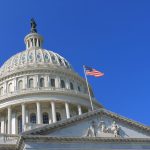Published July 28, 2014
The D.C. Circuit Court’s Halbig decision has put some bounce in the step of Affordable Care Act opponents, and for good reason. The decision affirms what many of the law’s opponents have been saying for some time — which is that the president has exceeded his executive authority with interpretations of the statute that are contrary to its plain reading and selective enforcement of several of its key provisions. The circuit court’s decision is, at a minimum, an affirmation that this critique of the Obama administration, so often derided by the press, has merit.
But the Halbig case could turn out to be much more than a mild rebuke of an overreaching administration. The court ruled that only state-based exchanges can pay the ACA’s premium credits to insurers on behalf of plan enrollees, meaning that the back-up federal exchange, now used in 36 states, can offer insurance choices to the residents of those states but cannot offer those citizens premium credits to subsidize their selections.
If this interpretation were to stand (presumably by being confirmed by the Supreme Court), it would substantially disrupt Obamacare’s on-going implementation. Without the premium credits, many of those who selected insurance through the federal fallback exchange would drop their coverage. Enrollment would fall, adverse selection would ensue, and the individual insurance market would probably collapse in those states.
Some supporters of the ACA have argued that it is completely implausible that the architects of the law would have written it in such a way that would allow this to happen. But is that true? As others have noted, the original ACA would have terminated all federal funding of Medicaid in states that did not go along with the expansion of the program to persons with incomes up to 138 percent of the federal poverty line. Imposing this penalty would have pushed millions of senior citizens out of nursing-home care, terminated-social service support for millions of disabled children, and dramatically increased the uninsured rate. (Of course, this penalty was struck down the by Supreme Court for being unduly coercive.) It seems the Congress that wrote the ACA was willing to go pretty far to push states into accepting the law’s structure.
It is also relevant that the Senate, when considering the ACA, was determined to provide a state-focused counter to what it saw as excessive centralization in the House bill. The emphasis on state prerogatives was not just a policy preference in a chamber traditionally oriented in that way. It was also necessary to round up the necessary votes to pass the bill with only Democratic support. For instance, Senator Ben Nelson of Nebraska made it clear throughout the debate that he wanted to present it to his constituents as a state-focused reform, not a federal solution.
All of this lends credence to the argument that the plain reading of the statute — that the credits are only payable in the state-built exchanges — is not inconsistent with a plausible interpretation of congressional intent, as the law’s defenders have attempted to argue, and in fact is just as likely to reflect the collective will of the senators who wrote it.
Some opponents of the law might believe that a favorable court decision on the premium subsidies will be so debilitating that the law will finally collapse altogether. But that seems unlikely, given that the Medicaid expansion will remain in place in half the country, and there will be millions of tax-credit recipients in California and elsewhere still enrolled in subsidized coverage. ACA defenders will almost certainly respond to a new legal setback in the same way they have responded to every other problem the law has faced over the past four years, which is to do whatever is necessary to ensure it survives. Obamacare is thus likely to limp along on in some fashion, but with serious problems. For instance, states without their own exchanges could probably create a legal workaround by designating the federal exchange as the contractor for a state-run exchange. In states favorably disposed to the ACA, this might allow the payout of premium credits without the headache of building a full-blown state exchange.
Still, there’s no doubt that the Supreme Court’s upholding of Halbig would be a very significant blow to the ACA. Since 2010, the Obama administration’s preferred course has been to avoid seeking fixes for the ACA in Congress by using elastic interpretations of what the law requires. An unfavorable court decision would probably force the Obama administration back into the legislative process, which would mean more leverage for Republicans.
Opponents of the law need to be ready for that moment so that a victory in the courts results in a real change in direction in health policy.
Fortunately, there has been significant progress on developing serious plans to replace the ACA in recent months. In January of this year, Republican senators Richard Burr, Tom Coburn, and Orrin Hatch released a reform blueprint that would expand insurance coverage to as many people as the ACA and provide secure insurance options for those with preexisting conditions, at a fraction of the expense of the ACA. A similarly well-thought out plan was released shortly thereafter by the 2017 Project. Should a favorable court decision be issued by the Supreme Court, even if a full replacement plan isn’t possible (as it likely wouldn’t be if the decision came in 2015 or 2016), the reforms included in Burr-Coburn-Hatch and the 2017 Project plan could inform what the GOP would seek to accomplish in any legislation that the president might seek to “fix” Obamacare.
The Halbig case has reminded the country that the ACA is still not a settled matter, despite what the president has said. But time is also not on opponents’ side either. If a court decision forces Congress to revisit some basic questions about Obamacare, the GOP cannot afford to squander the opportunity.
James C. Capretta is a senior fellow at the Ethics and Public Policy Center and a visiting fellow at the American Enterprise Institute.






